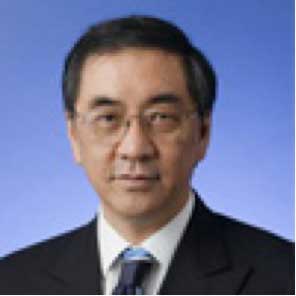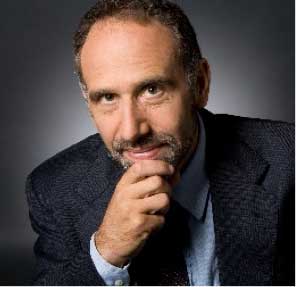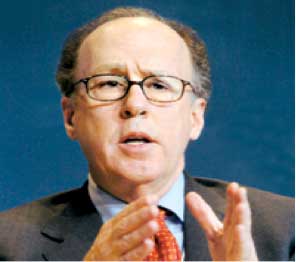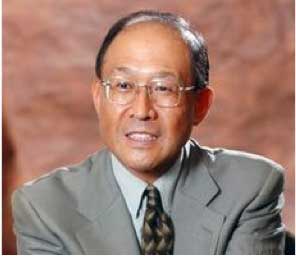The world economy is ‘clearly’ recovering while US-China trade conflicts and spread of populism could be a potential risks
The global economy has recently shown good signs for the first time in nine years since the 2008 global financial crisis. Economy Chosun, a weekly magazine specializing in economic and business news published by Korea’s most prestigious media group Chosun Media Group, published an in-depth article analyzing the current state of the global economy in a cover story. Speaking with distinguished economists from around the world, they diagnose the efforts of each country in resolving the recession.
Professor Leslie Young from Cheung Kong Graduate School of Business shared his insights on global economic issues especially China’s and its global economic impact and discussed these issues with renowned economists from Europe, USA and Japan. The diagnosis of economic experts in each country was as follows;
“Chinese corporate debt needs thorough management. However, it is not a big problem because the government can intervene in the personnel and policies of major banks at any time.”
 Leslie Young
Leslie Young
Professor at Cheung Kong Graduate School of Business
“There are big and small structural problems in Europe, such as the spread of brick sheets and extreme right forces. Failure to solve this problem will put a long burden on the European economy.”
 Ian Bremer, Chairman of Eurasia Group
Ian Bremer, Chairman of Eurasia Group
Chairman of Eurasia Group
“The senior economic bureaucrats of the Trump government have a traditional view of trade from the financial world. Therefore, Trump will not want trade friction with China.“
 Dean Baker
Dean Baker
Principal of US Economic Policy Research Center
“Trade friction between the United States and China will have widespread impacts on the world economy. The Trade war between two countries can bring big and small world trade conflicts.”
 Stephen Roach
Stephen Roach
Professor at Yale University
“Following the Fed’s rate increase, the European Central Bank (ECB) will raise the benchmark interest rate, also China will be following. Although it was not intended, it can cause negative effects.”
 Tyler Cowen
Tyler Cowen
Professor at George Mason University
“This is proof that the Japanese economy, which has been influenced by the current labor shortage of Japanese companies, is continuing to recover.”
 Masahiro Kawai
Masahiro Kawai
Professor at Tokyo University
In this cover article, the experts from various countries pointed to the economic recovery in Japan, which has been on the rise for 53 months and also the rise of global stock markets and the global economic crisis caused by the protection trade of the US Trump Administration, while also analyzing the situation of the Chinese economy.
The economists focused on trade between countries, even with concerns about Brexit and the proliferation of protection-oriented schemes from the United States. Particularly, the unemployment rate, the stock market, and the trade volume are noticeable among the economic indicators. Japan’s unemployment rate stood at 2.8% in February, which is the lowest level in 23 years and the experts pointed out that Japan’s economic recovery is the result of the second Abe administration in December 2012.
Prof. Leslie young and the other experts shared opinions that the regression of free trade by the Trump administration’s protectionism would be the biggest hurdle to world economic growth in the future. Also Prof. Young pointed out that the results of the Brexit vote and the US president election have led to the rise of the populism including Le Pen in France. For the Chinese economy, there are many worries about corporate debt, which accounts for 170% of GDP. He commented that “China’s corporate debt needs thorough management,” and insisted “China’s corporate debt requires determined management but it is not yet a crisis, because state debt is relatively low and the state has massive assets on its balance sheet, advantages shared by no other major economy. Another advantage is that China’s top leadership can intervene directly to change the leadership and the policies of major banks.”